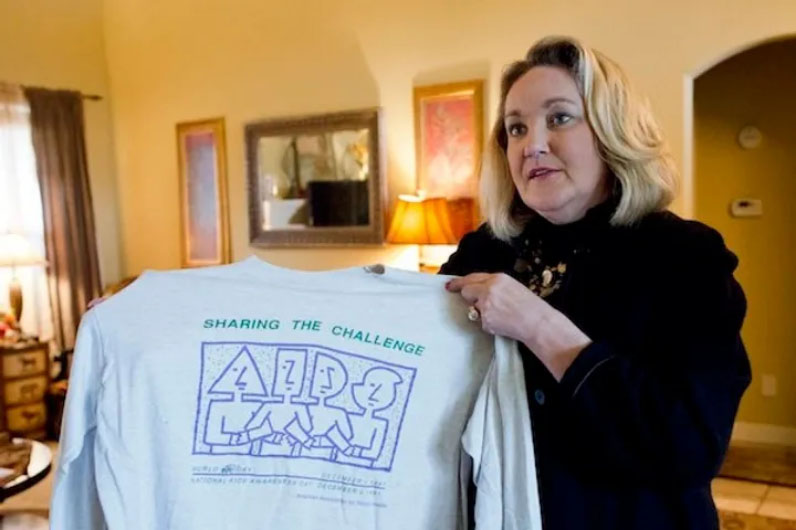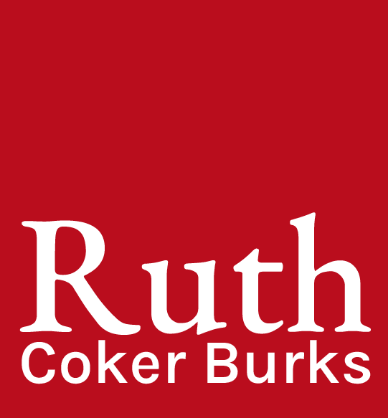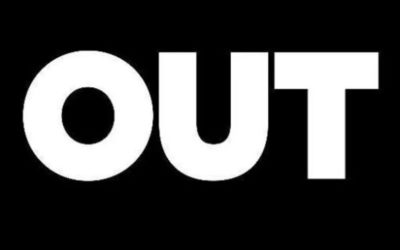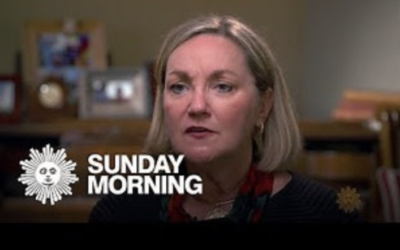Fighting Fear and Stigma To Care for AIDS Patients

Mama Ruth
A Childhood Friend of President Bill Clinton, Ruth Coker Burks Was Tapped by a Higher Power for a Vital Mission.
Ruth Coker Burks had forty children, all of them boys. Well, I’ll explain.
Let’s travel back to 1984, when an AIDS diagnosis was considered a death sentence. Ruth, now fifty-seven and a grandmother of three, was twenty-five, divorced, and the mother of a small daughter, Allison. Her matriarchal journey took a new route when she visited a friend, who was battling cancer, at a hospital in Hot Springs, Arkansas, her hometown. On her way to the room, she noticed a patient’s door draped with a red bag. She was curious but was in a hurry to see her friend. The next day, she passed the door again, observing nurses draw straws to see who would go in. Ruth had an idea what was going on.
Due to curiosity or chosen by a higher power, as she believes today, Ruth surreptitiously entered. She saw an emaciated young man. Once they started chatting, he asked for his mother.
When she exited the room, the nurses squealed, “You didn’t go into that room, did you?!” She responded, “Yes. He wants to see his mother.” Amused, the nurses replied, “Honey, his mother’s not coming. He’s been here six weeks and nobody’s coming. Nobody’s been here and nobody’s coming.”
Ruth didn’t accept their answer. Persistence led her to track down the phone number of the man’s mom. When Ruth phoned, the mother hung up. Ruth called back and warned, “If you hang up on me again, I will put your son’s obituary in your hometown newspaper and I will list his cause of death.” She had the woman’s attention.
Spewing fire and brimstone, the woman grumbled that her son was a sinner and that in her eyes he was already dead. She added that she was not going to claim the body.
Ruth felt sad and defeated. What would she tell the woman’s son? As soon as she entered his room, he said, “Oh, mama, I knew you’d come.” He lifted his head. Ruth grasped his hand and retorted, “I’m here, honey. I’m here.”
It was probably the first time he had ever been touched with ungloved human hands since he had been in the hospital.
Ruth stayed with the man thirteen hours and was with him when he took his final breath. Why wasn’t she afraid? Ruth simply says, “I never thought about it.”
Ruth called the man’s mother again to see if she wanted his body. She didn’t. Ruth had the body taken to a funeral home and she paid for the cremation. When the ashes were delivered to her in a cardboard box, she emptied the man’s ashes into a cracked cookie jar that she got at a friend’s pottery shop. She then went to Files Cemetery, where her family has been buried since the 1880s, dug a hole in her father’s grave, placed the urn into the hole, and covered it with dirt. She prayed over the grave. Ruth knew her father would appreciate what she did. She buried about fifty souls this way. “I was burying people my age, but they were my children.” (In all, through the years, Ruth administered care to over a thousand people.)
The next few years, this scene would play out again and again, as Ruth became the caregiver to those dying of AIDS-related causes. Even Ruth’s little daughter would accompany her to the cemetery and help dig a grave alongside Ruth. No priest or preacher would acquiesce to officiate. Ruth buried nearly fifty men like this, those who died alone, whose family disowned them. Sometimes, making a last ditch effort to contact the families, they would cuss her out or call her the devil.
“Word went around that there was this wacko woman in Hot Springs who wasn’t afraid,” Ruth exclaims about others’ perceptions of her. She’d get referrals from hospitals in other cities to care for these men. Ultimately, she became more involved and would drive them to their doctor’s appointments, to pick up their meds, and even network and rally to help them receive financial support as well. Their expenses sometimes were covered by private donations she received, and sometimes she used her savings. Eventually, gay clubs began fundraising to help her cause. One of those clubs was Discovery, located in Little Rock, and on Saturday night, the drag queens who worked there would put on shows to raise money. In 1988, the owner, Norman Jones, founded the nonprofit, Helping People With AIDS, with which Ruth was strongly affiliated.
Caring for these men with opportunistic infections was an infernal abyss for Ruth, as she witnessed their demise, one by one. She even helped to fill out their death certificates, since their families had abandoned them. “We’d sit there by the bed, have pizza, and fill it out.” Ruth would also become their confidant, confessor, and mood-lifter, helping them out of isolation and depression.
One time, Ruth recalls, the mother of one of her “boys” called to ask, “How long before he dies? He’s ruined our lives and we need to get on with ours. We don’t want people to know he has AIDS.”
Another patient, Billy, a drag performer who was in his early twenties, was in despair one day after Ruth drove him to an appointment in Little Rock. She joyrided around to lift his spirits. They passed the zoo where someone was riding an elephant. He softly uttered, “I’ve never ridden an elephant….” Ruth replied, “We’ll fix that!” And in one of her many memory boxes there’s a photograph of them both proudly straddling the elephant. Ruth sports a top, skirt, and heels, and Billy just beams. (Eventually, a couple of weeks before he died, he had withered away to fifty-five pounds.)
According to Ruth, her patients lived two years longer than the national average, and the NIH (National Institutes of Health) and CDC would send her patients. They couldn’t understand what she was doing. Her “secret”? Love and touch.
Ruth Coker Burks’s response at the genesis of the AIDS crisis was undeniably valiant and plucky—most certainly trailblazing. She approached her mission with vigor, tenacity, and compassion, a lone warrior in battle, who besides playing mother was a nurse, priest, friend, consultant, gravedigger, masseuse, and chauffer.
Today Ruth is as vibrant as ever, still lending her support to those affected by the epidemic, despite suffering a stroke several years ago and recently experiencing blood clots in her lungs. On December 1, she is being presented with the Thom Weyand Unsung Hero Award by the National AIDS Memorial Grove in San Francisco.
During one of President Bill Clinton’s terms, Ruth served as a White House consultant on AIDS education. She moved to Florida where she was a funeral director for a few years, and then returned to Arkansas and settled in Rogers to be closer to her daughter and grandchildren.
In 2014, Dave Isay, who founded StoryCorps interviewed Ruth and it was aired on NPR. In the interview she spoke about her yearning to keep history alive at Files Cemetery, and of the turmoil people went through at the beginning of the epidemic, when it was then known as GRID (gay-related immune deficiency), expressing her desire to erect a memorial to honor “her boys.” Travis Dubreuil, who heard the broadcast and lives in New York, decided to create a GoFundMe campaign to help Ruth’s dream come true. Funds are currently being raised to not only purchase a monument, but renovate the dilapidated cemetery, as well.
Ruth’s birth name is Frances Ruth Coker Burks, after her paternal grandmother. Once her story gets turned into a film, Ruth said she could see Amy Schumer playing her. “I feel that she has the moxie to pull it off. She has a sense of humor which you have to have if you’re going to do what I did.” Emma Stone, too, she adds.
Dann Dulin: Out of all the misery and horror that you experienced, what one positive thing came out of it for you?
Ruth Coker Burks: I witnessed pure strength and courage. I witnessed and felt pure love. I saw faith.
How did you deal with the sadness?
I’d go fishing. At times I did feel like crying, but I held up for them.
Where did you get the guts to care for these sick, dying people, at a time when many thought that AIDS could be easily communicable?
From God.
Being right in the trenches from the onset of the epidemic, what surprises you the most about the current state of affairs about this disease?
That we are right back where we started from, except it isn’t the death sentence it once was. The young people aren’t getting the education that they desperately need. The older generation is still suffering in silence. Many haven’t had relationships in over thirty years. They have had so much loss in their lives they can’t take anymore. Then there are the long-term survivors who need our help in so many ways.
What did you learn about yourself?
I learned that I had more strength than I ever thought I had. I also realized that I was brave for my guys, and that stress will wreck your body. It catches up with you sooner than later.
What do you think happens after we die?
We all have different perceptions about the afterlife. I always tried to give my guys back what they believed. People always ask me about my guys and I tell them that they all got right with their God before they died. I never apostatized. For me, I hope to go to Heaven, rest for a while by the beach, with all of my guys and have a few cocktails, until I get another assignment.
What made you reach out? Where did this empathy come from?
How could I not?! I feel people’s suffering, animals too. Sometimes it is hard to not reach out to everyone and to mind my own business. I had a rough childhood. My mom had TB and was in the hospital for a long time. My daddy took care of me during that time until he died. I was five. My mother wasn’t equipped to be a mother, so I was on my own from an early age. I learned to just treat people like I wished someone had treated me.
What was the number one thing that pissed you off during the time you cared for your “boys”?
The [lack of] response from the churches and the government. I know for a fact that the clergy all said in their sermons to love one another, to take care of the sick and the needy, and to help those who are less fortunate. There was the perfect opportunity to put all of those teachings to action with AIDS…but the churches were the first to slam their doors shut.
Unfortunately, stigma still surfaces today. How do we rail against it?
I was denied a job that was specifically designed for me a couple of years ago because I went on TV and advocated for three elementary-age, disabled, foster children who the superintendent of their school district suspended because he had heard that someone in the family had AIDS. This was in 2014! I had been promised the job but hadn’t accepted it yet. When I went to fill out my paperwork I was told, “The job is no longer available.” I was blackballed from all of the funeral homes and cemeteries in my area. I loved my job and I was very good at it. It broke my heart.
Tell me, what are your plans for Files Cemetery?
We’re raising money to make the cemetery into a beautiful garden, a place to meditate and contemplate. It has become a pilgrimage site where people from all around the country go to pay their respects. I had a landscape architect contact me and offer to design the renovation and make it something that the men would be proud of. Any other money raised will be used to buy plants, statues, and benches to beautify it.
Lovely! What kind of garden do you envision?
I want to plant old-style flowers and shrubs that don’t need much watering. The flowers will be jonquils, peonies, camellias, gardenias, and forsythias. You know, the kind that would have been in your grandmother’s yard. These plants I want to flower all year round, so no one will feel lonesome and unloved.
What’s your concept of the monument?
A weeping angel. We will also have a plaque telling the story of what happened from my eyes and the story of my brave men who died, also listing their names.
After I’m gone, no one will take care of it so I want to set up some kind of trust to help keep the place intact.
Who are your heroes in the epidemic?
There are so many….My guys were heroes to me! They were brave beyond anything I had ever seen in my life. They would take their meds up until the day they died, [believing] there was a cure right around the next corner. Hope.
Ruth’s Recipe
Her advice on what needs to be done today
1) GET TESTED!
2) The young people need to take to heart and understand that a generation of brave men and women died so that they could live.
3) We need to remember and take care of the Long Term Survivors. They are the forgotten ones in this pandemic. We need to find them and help them get what they need.
4) Educate yourself and learn to be your own Sexpert! There’s no reason to be shy. Take advantage of the Internet. Men, learn how to wear a condom (https://vimeo.com/204074590); Women, condoms are available for you too (http://www.fc2femalecondom.com); Find out about the prevention drug PrEP. Sex is supposed to be fun.
5) Life is short. Live a remarkable life. Have adventures. Be outrageous.
Ruth Coker Burks is available for speaking engagements. To book her, please contact Toni Y. Long at tlong@tyllaw.com.




